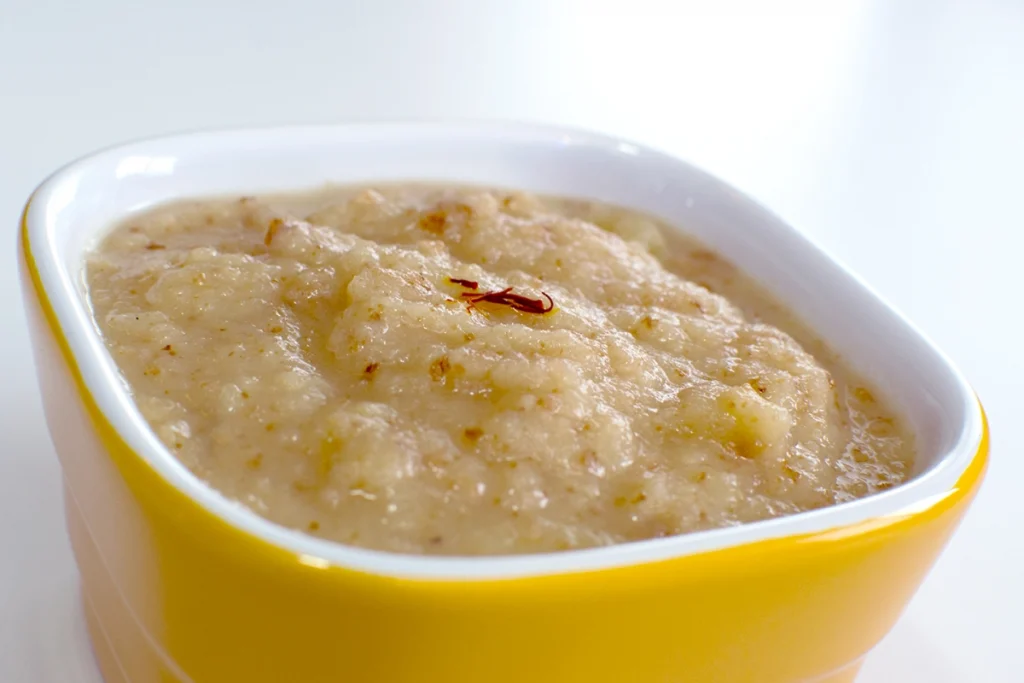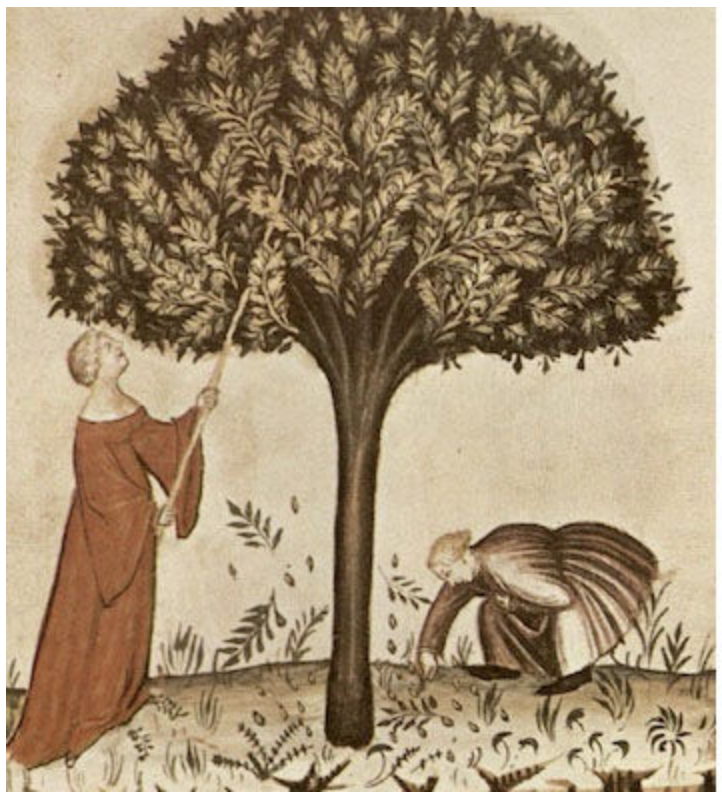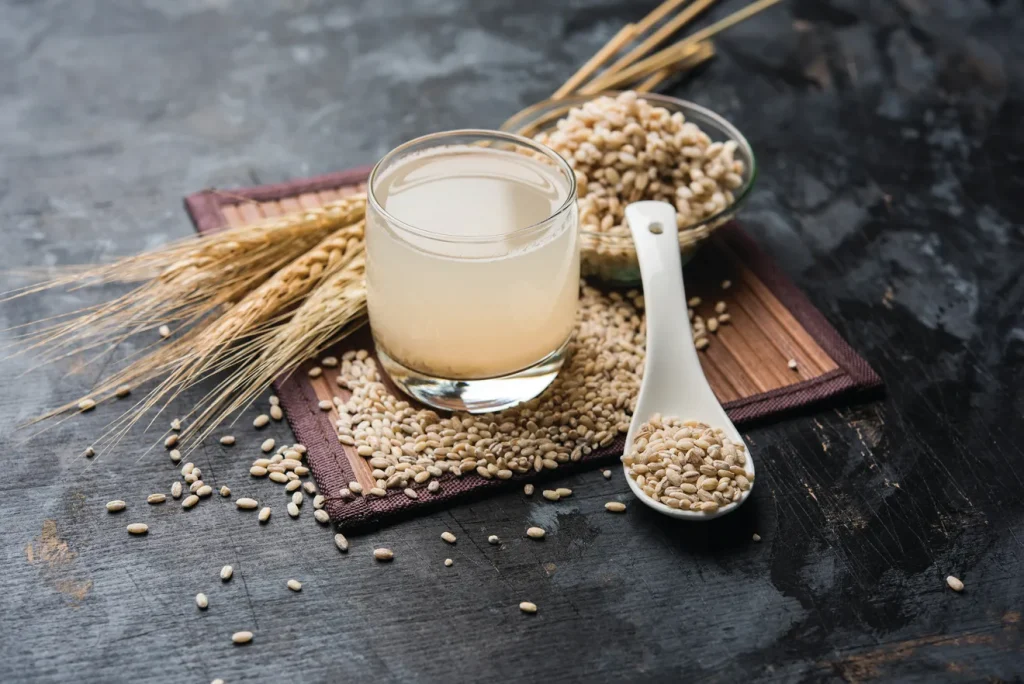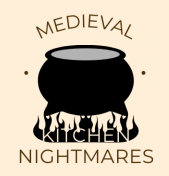As mentioned in our first blog, we will be following several 14th- to 15th-century French Medieval recipes from the website ‘Medieval Cookery’ ! More specifically, we will be making almond milk, barley water, bread, turnip salad, cinnamon brewet (a beef dish), and apple muse all from scratch!

Apple Muse was a dessert eaten during the 15th century in England, France, and Naples. Medieval Cookery notes that it has a oatmeal texture and a hint of cherry flavour. Image from A Dollop of History: https://historydollop.com/2017/04/17/apple-muse/
With this project, we hope to:
- Gain insight into the culinary realities of peasants and royals alike… that being said, did you know that most peasant women and men were illiterate (Vaughan, 2020)? As a result, the original transcription of the recipes will come from the scribes of the wealthy.
- Expand our knowledge on how religion, the balancing of humours, seasonality, and social class influenced the making and eating of food. Can you think of how your eating habits is influenced by modern culture?

Almonds, Amigdale dulces, from The Four Seasons, The House of Cerruti (Met Museum). Did you know that almond milk was used as a substitute to milk or cream during ‘fish days’, which was when the church placed restrictions on what could be eaten?
So what kinds of questions should we ask ourselves to explore these themes through experiencial learning? Here is what we have so far (but more will probably come to us doing the actual cooking!)
- What were the smells, taste, and texture of medieval French dishes, and how do they differ from modern-day Western recipes?
- What was the workload of medieval cooking and how do we feel as newbies in the kitchen ? (could this related to children learning to cook…)
- How does it feel to finally sit down and taste our creations together? (could this relate to families eating together…)

Barley water recipes were very often written in medieval medical texts. What do you think are the health benefits of this drink? Getty Images
Overall, the enjoyment of food is a universal cultural experience, and we hope to join this cultural experience by bringing Medieval French food into our modern context! We will take plenty of photos and written notes during the cooking and feast to share with you all! But for now, look out for the next blog on our ingredients!!
Reference:
Vaughan, T. A. (2020). Women, Food, and Diet in the Middle Ages: Balancing the Humours. Amsterdam University Press.
